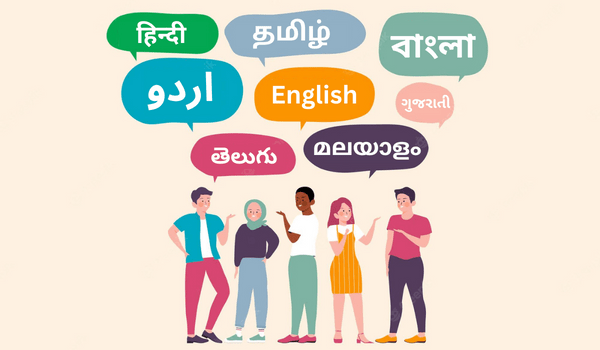Techies embrace their Local Language: Mother tongue, to Excel
Goal: Why is learning in Mother tongue important?
In the vast landscape of education, one principle stands resolute: the language of instruction plays a pivotal role in a child's learning journey. Listening to a seasoned language and education expert with half a century of experience, we’ve witnessed firsthand the profound impact that learning in one's local language, or mother tongue, can have on a child's educational attainment and overall development.
Picture this: a young mind embarks on its educational voyage, eager to explore the world of knowledge. Now, imagine presenting complex concepts, intricate theories, and multifaceted ideas in a language that feels foreign, distant, and disconnected. The struggle is real, my friends. It's like trying to navigate through a dense forest without a map or a compass.
Children are inherently wired to grasp information more efficiently when it's presented in a language they understand best – their mother tongue. Countless studies have substantiated this claim, shedding light on the cognitive, linguistic, and academic advantages of learning in one's native language. Allow me to illuminate you with some compelling evidence.


A seminal study conducted by UNESCO revealed that children who receive education in their mother tongue tend to outperform their peers who are taught in a second language. The study, titled "If You Don't Understand, How Can You Learn?", underscores the importance of linguistic familiarity in the learning process. You can delve into this enlightening research right here: UNESCO Study
But let's not stop there. Let's venture into the realm of professional skills building, where the stakes are higher, and the demand for linguistic proficiency is paramount. Take, for instance, the field of software engineering. In today's digitally-driven world, mastery of programming languages like Python, Java, or C++ is indispensable. Now, imagine grappling with complex coding syntax and algorithms in a language that feels alien. The challenge becomes exponentially daunting, doesn't it?
A compelling case study conducted by the University of California, Berkeley, delved into the efficacy of teaching programming languages in students' native tongues. The results were nothing short of revelatory. Students who were taught coding concepts in their mother tongue exhibited higher comprehension, retention, and problem-solving abilities compared to those instructed in a second language.


There's more. Let's journey into the realm of Artificial Intelligence and Machine Learning (AIML). As the driving forces behind transformative technologies, proficiency in AIML is in high demand. However, navigating the intricate landscapes of neural networks, algorithms, and data structures becomes a Herculean task when expressed in a language that feels foreign.
A thought-provoking article published by Harvard Business Review sheds light on the importance of linguistic alignment in AIML education. Titled "Lost in Translation: The Importance of Language in AI Education," this insightful piece underscores the pivotal role of language in facilitating deep understanding and mastery of AIML concepts. Explore this captivating article right here: Harvard Business Review Article.
In essence, the evidence is clear, my friends. Learning in one's local language, or mother tongue, isn't just a matter of convenience – it's a fundamental pillar of effective education. From nurturing cognitive development to fostering professional expertise, linguistic familiarity paves the way for a brighter, more empowered future. So let's embrace the richness of diversity, celebrate the beauty of language, and empower our children to soar to new heights, one word at a time.